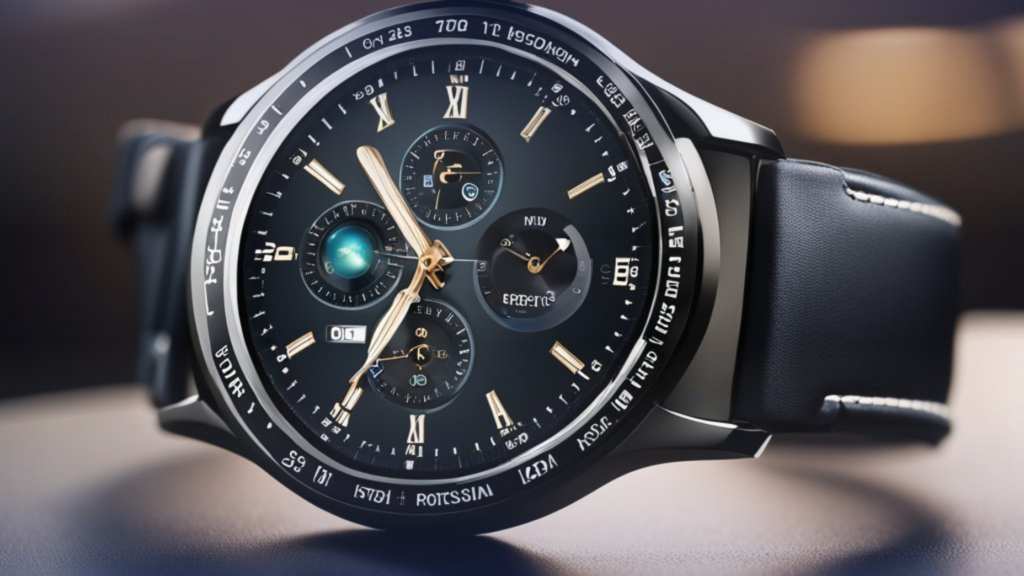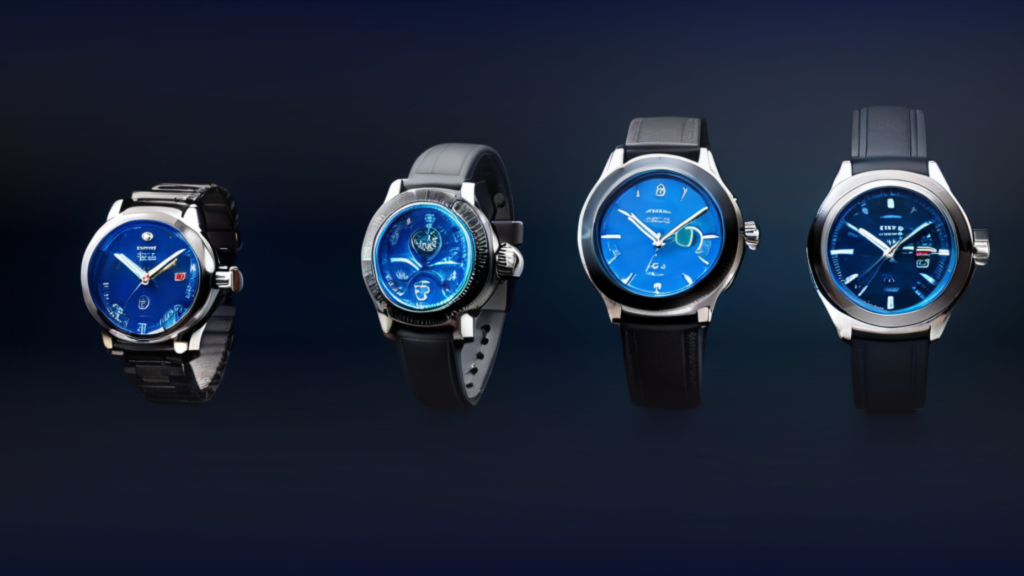In this article, we delve deep into the world of automatic watch movements, uncovering their advantages and highlighting why they are worth your attention. From their seamless functionality to their timeless appeal, automatic watches offer a blend of tradition and innovation that appeals to watch enthusiasts worldwide. Whether you’re a seasoned collector or new to the world of timepieces, understanding the advantages of automatic watches can enhance your appreciation for these remarkable timekeeping devices.
The Allure of Automatic Timepieces: Key Benefits Explained

What Are Automatic Watch Movements?
Automatic watch movements, also known as self-winding movements, utilize the natural motion of the wearer’s wrist to power the watch. Unlike quartz watches, which rely on batteries, automatic watches derive their energy from the kinetic energy generated by the wearer’s movements. A semi-circular metal weight, known as a rotor, pivots with the motion of the wrist, transferring the energy. As the rotor spins, it winds the mainspring, storing energy to power the watch.
How Do Automatic Watches Work?
Automatic watches operate on the principles of mechanical horology, utilizing a series of intricate gears, springs, and levers to keep time. The mainspring, a coiled spring that stores potential energy when wound, is at the heart of the movement. The rotor winds the mainspring in automatic movements, rotating with the movement of the wearer’s wrist. This winding action transfers energy to the gear train, which then distributes it to the escapement and balance wheel, regulating the release of energy to ensure accurate timekeeping.
Are Automatic Watches More Accurate Than Quartz?
While quartz watches are renowned for their accuracy, automatic watches offer a charm and craftsmanship that cannot be replicated. The precision of automatic movements relies on the skill of the watchmaker and the quality of the components used. While quartz watches may have a slight edge in terms of accuracy, many enthusiasts prefer the timeless appeal and mechanical artistry of automatic watches.
Exploring the Advantages of Automatic Watches
- Seamless Functionality: Automatic watches do not require manual winding, as they are self-winding with regular wear.
- Timeless Appeal: Automatic watches embody the tradition and craftsmanship of mechanical horology, appealing to collectors and enthusiasts.
- Kinetic Energy: By harnessing the motion of the wearer’s wrist, automatic watches offer a unique and eco-friendly power source.
Understanding the Power Source: The Role of Rotors
The rotor plays a crucial role in automatic watch movements, serving as the driving force behind the self-winding mechanism. The rotor, made of metal, attaches to the movement via a pivot point, enabling it to rotate freely with wrist motion. As the wearer moves, the rotor swings back and forth, winding the mainspring and storing energy to power the watch.

Manual vs. Automatic: Which Is Right for You?
Choosing between a manual or automatic watch ultimately comes down to personal preference and lifestyle. Manual watches require regular winding by the wearer to maintain power, while automatic watches are self-winding and only require regular wear to stay powered. Some enthusiasts appreciate the ritual of winding a manual watch, while others prefer the convenience of an automatic movement that keeps time seamlessly.
Can Automatic Watches Be Overwound?
Many people mistakenly believe that automatic watches can be overwound, but modern automatic movements prevent this. Manufacturers design these movements with built-in safeguards, such as a slipping clutch or slipping mainspring. These features allow the rotor to slip when the mainspring is fully wound, preventing over-tensioning.
The Artistry of Automatic Watch Craftsmanship
Automatic watch movements embody functionality while serving as a testament to the artistry of traditional watchmaking. Craftsmanship shines through. Skilled watchmakers meticulously assemble each movement, carefully adjusting and regulating components to ensure optimal performance and precision. From the intricate engraving on movement bridges to the precision polishing of gears, every aspect reflects dedication and expertise. Craftsmanship shines through in every detail of an automatic watch, showcasing the skill of its creators.
Maintenance Tips for Automatic Watches
- Regular Wear: Wearing the watch regularly helps keep the movement powered and prevents the oils from drying out.
- Professional Servicing: Regular servicing by a qualified watchmaker is recommended to keep the movement clean, lubricated, and in good working condition.
- Proper Storage: Storing the watch in a dry, stable environment away from extreme temperatures and magnetic fields can also help prolong its lifespan.
Investing in Time: The Value of Automatic Watches
Automatic watches are not just a practical accessory; they are also a valuable investment. Unlike mass-produced quartz watches, high-quality automatic timepieces have the potential to retain or appreciate over time. Vintage automatic watches, in particular, have become highly sought after by collectors, commanding premium prices at auctions and resale markets. As such, investing in a well-crafted automatic watch can be a rewarding decision both aesthetically and financially.
Conclusion
Automatic watch movements offer a blend of tradition, craftsmanship, and innovation that appeals to watch enthusiasts around the world. From their seamless functionality to their timeless appeal, automatic watches embody the essence of timekeeping evolution. Whether you appreciate the artistry of traditional watchmaking or simply enjoy the convenience of a self-winding timepiece, automatic watches continue to captivate and inspire with their elegance and precision.
Key Takeaways:
- Automatic watch movements utilize the natural motion of the wearer’s wrist to power the timepiece.
- They offer a blend of tradition, craftsmanship, and innovation, appealing to watch enthusiasts worldwide.
- Proper maintenance is essential for ensuring the longevity and accuracy of automatic watches.
- Investing in a well-crafted automatic watch can be a rewarding decision both aesthetically and financially.
People Also Asked
Benefits of an Automatic Watch
Automatic watches offer several advantages, including self-winding mechanics, which harness the energy from the wearer’s wrist movement, eliminating the need for batteries. They are often appreciated for their craftsmanship, longevity, and ability to provide a traditional timekeeping experience. Additionally, many enthusiasts value the heritage and artistry involved in their design.
Is it better to wear an automatic watch?
Whether it’s better to wear an automatic watch depends on personal preference. Automatic watches provide a classic appeal and require no battery changes, making them convenient for daily wear. However, they may require regular wearing or a watch winder to keep functioning correctly. If you appreciate craftsmanship and tradition, an automatic watch can be a great choice.
Is an automatic watch better than a battery?
It depends on what you value in a watch. Automatic watches are often seen as superior due to their intricate mechanics and craftsmanship, offering a traditional feel. Conversely, battery-powered watches provide greater accuracy and require less maintenance. Ultimately, the choice hinges on personal preference for style, convenience, and functionality.
Why do people prefer automatic watches?
People prefer automatic watches for several reasons:
- Craftsmanship: The intricate mechanics and artistry involved in making them.
- Heritage: The traditional watchmaking techniques they represent.
- Self-Winding: The convenience of not needing battery replacements.
- Longevity: They can last for generations with proper care, making them a worthwhile investment.
What is the weakness of an automatic watch?
The main weaknesses of automatic watches include their sensitivity to movement; they may stop if not worn for an extended period. They can also be less accurate than quartz watches and may require more maintenance due to their mechanical parts. Additionally, they can be more expensive due to their craftsmanship.
Is it OK to sleep with an automatic watch?
Yes, it is generally okay to sleep with an automatic watch. Many people choose to wear their watches overnight to ensure they continue running. However, if the watch is bulky or uncomfortable, you might prefer to remove it for a better night’s sleep.

